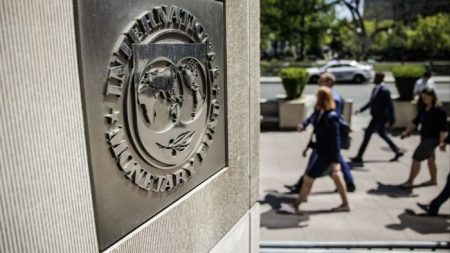Unlock the Editor’s Digest for free
Roula Khalaf, Editor of the FT, selects her favourite stories in this weekly newsletter.
Lawmakers in US state capitals are seeking to stifle development of “lab-grown” tuna, pork and other animal proteins, taking a stand against a novel food technology backed by investors such as Bill Gates and Jeff Bezos.
Republicans in at least seven states have introduced legislation since the beginning of the year to ban sales or distribution of lab-grown meat, a form of edible protein cultivated from animal cells.
The first product — cultivated chicken — won federal approval last year as safe for humans to eat, and has only been available to diners at a Michelin-starred restaurant in San Francisco and an eatery in Washington owned by chef José Andrés.
Yet lab-grown meat has become a red meat issue for politicians. Some conservatives such as Florida governor Ron DeSantis have woven cultivated meat into attacks against the “woke” political agenda of liberals. Others have tied it to concerns about vaccines.
“Some folks would probably like to eat bugs with Bill Gates, but not me,” Bud Hulsey, a Tennessee state representative, said at a March subcommittee hearing on cultivated meat legislation.
“I think the Nuremberg code was all set up so you would not experiment on human people with new products and new experimentations without it being tested and tried and found out what it can do,” he said in support of a cultivated meat ban. “We just came through Covid with an experimental shot that had a whole lot more problems than anyone wanted to talk about.”
Florida’s legislature in March sent legislation banning sales of lab-grown meat in the state to DeSantis, who in February said: “We are not going to do fake meat. That does not work.” A spokeswoman for the governor declined to comment on whether he will sign the bill.
The US state legislation follows Italy, which last year barred the production of lab-grown meat in a law put forward by the right-wing government of Prime Minister Giorgia Meloni. However, the law may face legal challenges within the bloc as Italy has failed to comply with EU single-market procedures.
“Some people want to essentially kill this baby in the cradle,” said Paul Shapiro, chief executive of Better Meat, a California business that produces alternative proteins, adding that other countries are taking the nascent industry seriously. In 2022, China’s Ministry of Agriculture and Rural Affairs released a five-year agricultural plan that included fostering lab-grown meat.
“People in the national security field are now starting to wonder, ‘are we going to allow Asia to win the future of food technology?’” Shapiro said.
As has been the case in Italy, the US backlash to cultivated meat involves political messaging and domestic protectionism. Cattle ranchers and farmers have thrown their support behind states’ cultivated meat bills. Iowa legislation that includes a partial ban on cultivated meat is supported by the state’s pork, corn and soyabean industries.
Lab-grown meat has also faced questions about its similarity to conventional meats. The UN Food and Agriculture Organization said in December that “cell-based meats cannot be considered identical to the animal source food they aim to eventually replace, mainly due to differences in nutritional quality”.
Cultivated meat businesses argued they undergo close scrutiny by the US Food and Drug Administration and the US Department of Agriculture before products can be eaten. The proposed state legislative bans are “surprising and shortsighted”, said Sean Edgett, chief legal officer of cultivated meat company Upside Foods, one of the two businesses that last year won government approval to sell lab-grown chicken.
These bills “are very transparent about the motivation, which is to protect a conventional industry that is important to the state. No one is disputing that”, Edgett said. “The method in which they are protecting that existing industry is making a choice for consumers.”
As global demand for meat increases, conventional agriculture cannot meet the demand alone, he said. “We have always thought of ourselves as an ‘and’. It is not about stopping conventional [meat] — it is really about having alternatives out there.”
The cultivated meat sector raised $896mn from investors in 2022, bringing the total for the industry to $2.8bn since 2016, according to the most recent estimate from The Good Food Institute, a non-profit that advocates for alternative proteins.
In 2022, Berkeley California-based Upside Foods raised $400mn from Temasek, the Abu Dhabi Growth Fund, Baillie Gifford, SoftBank, Bill Gates and John Doerr, chair of Kleiner Perkins. This month the Bezos Earth Fund, a philanthropy launched by Amazon’s founder, pledged $60mn for academic research and development for alternative proteins, which also include faux meats made with plants such as peas and soyabeans.
“You have a meat industry that is afraid of innovation and is seeking to lobby lawmakers to ban this innovation,” Shapiro said. “It would be similar to Blockbuster lobbying lawmakers to try to ban streaming video.”
Read the full article here












